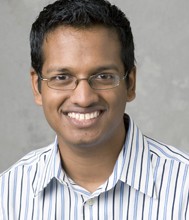Regularizing the Irregular
Over the past several decades of compiler research, there have been great successes in automatically optimizing regular programs, which operate over dense matrices and arrays. Tackling irregular programs, which operate over pointer-based data structures such as trees and graphs, has been much harder, and has mostly been left to ad hoc, application specific methods. In this talk, I will describe efforts by my group to automatically optimize irregular, recursive programs. The key insight is that by viewing these programs at the right level of abstraction, we can re-interpret compiler optimization techniques for regular programs to work for irregular programs instead. I will explain the basic ideas behind how compilers reason about programs (both regular and irregular), and explain how we think about transformations for both regular and irregular programs. I will then survey some results from my group that have allowed us to vectorize and parallelize irregular applications across a number of platforms.

Milind Kulkarni
Michael and Katherine Birck Head, Purdue University on June 12, 2024 at 10:30 AM in EB2 3001
Milind Kulkarni is the Michael and Katherine Birck Head and Professor of the Elmore Family School of Electrical and Computer Engineering at Purdue University. He is also the academic lead of the Robert H. Buckman College of Engineering Online Education Program. He received Bachelor’s degrees from North Carolina State University, and his PhD from Cornell University. His research focuses on developing languages, compilers and systems that can efficiently and effectively exploit locality and parallelism in complex applications on complex computation platforms. He received the NSF CAREER award in 2012 and the Department of Energy Early Career Research Award in 2013 for his work on optimizing irregular applications. He was awarded the Presidential Early Career Award for Scientists and Engineers in 2016, and was recognized as a University Faculty Scholar in 2018. He has received multiple best paper awards, as well as numerous departmental, college, and university awards recognizing his teaching, including Purdue's highest undergraduate teaching award. He is an ACM Distinguished Member and a senior member of the IEEE.
The Department of Electrical and Computer Engineering, sometimes in conjunction with other NC State departments makes an ongoing effort to invite the brightest experts from academia, business, and research to come speak and share their ideas, experiences, and research with faculty, students, and alumni at NC State.
